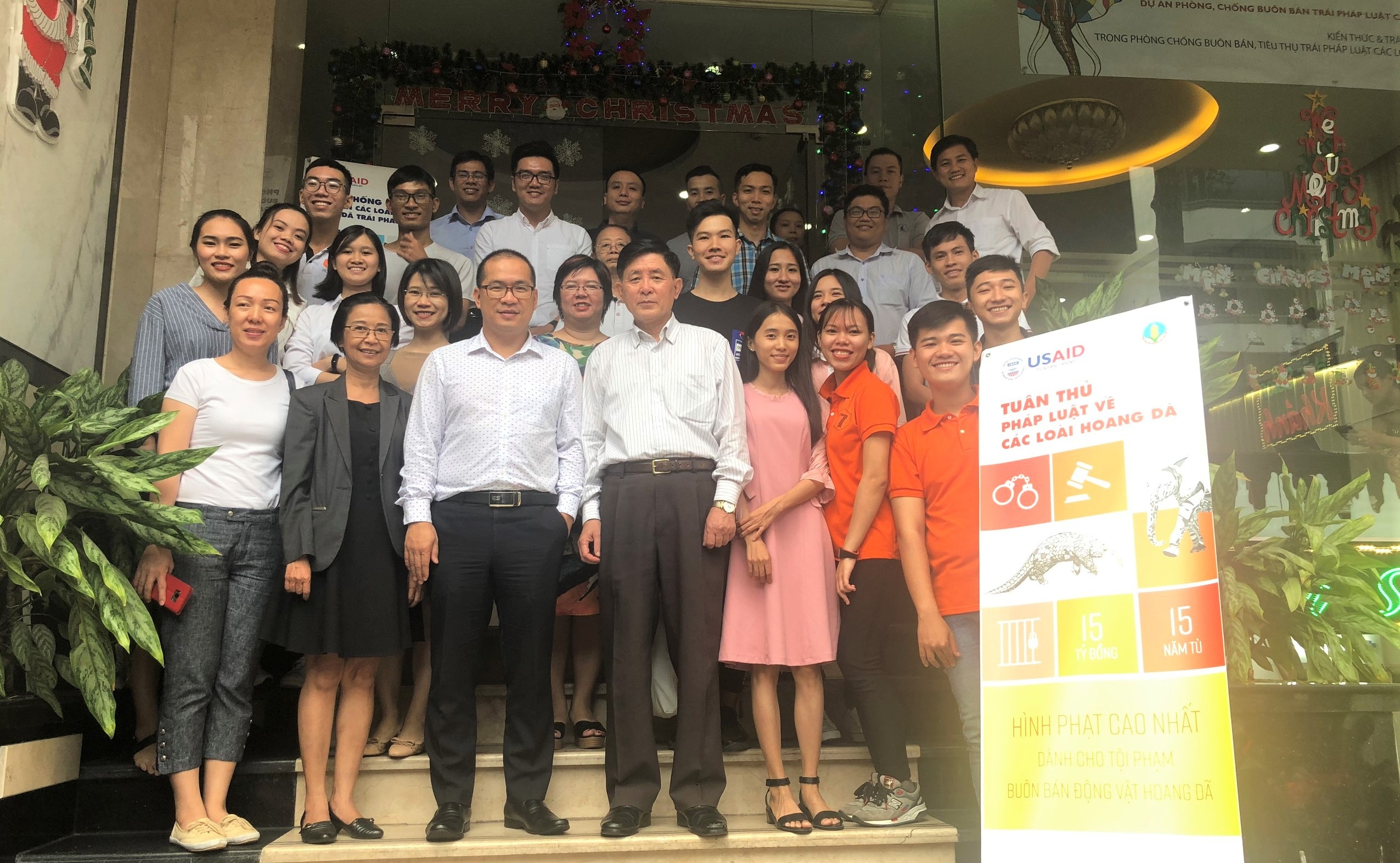
The project is organized by the University of Social Sciences and Humanities in collaboration with the United States Agency for International Development (USAID); the representative of CITES Convention Vietnam - Ministry of Agriculture and Rural Development with the aim of updating knowledge, enhancing responsibility for tour guides, travel agencies, accommodation units, tourist attractions and shopping places to promote communication to change tourists' behavior, reduce demand for consumption and purchase of products from wild animals (Wildlife).
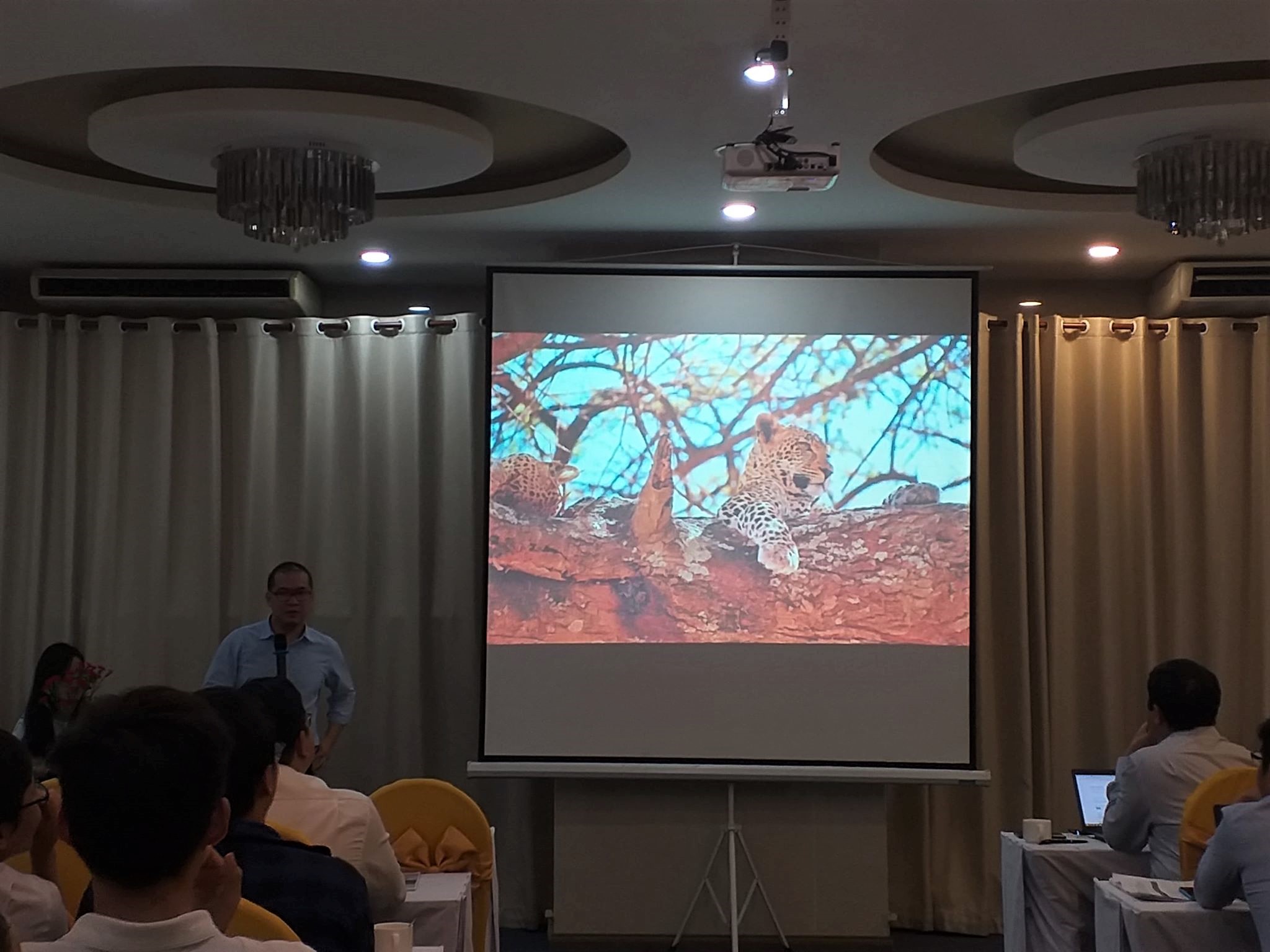
The opening ceremony of the training course was attended by Associate Professor, Dr. Pham Hong Long - Head of the Faculty of Tourism Studies, University of Social Sciences and Humanities, VNU; Dr. Tran Anh Tien - Head of the Department of Tourism and Management, Director of the Faculty of Science and Tourism Services Company, University of Social Sciences and Humanities, Ho Chi Minh City; Dr. Ngo Thanh Loan - Director of the Center for Sustainable Tourism Development, VASST and more than 60 students. Participating in the teaching and exchange were Dr. Pham Quy Ty - former Deputy Minister of Justice; Dr. Le Khac Quyet - Deputy Director of the Center for Biodiversity and Endangered Species Conservation; Dr. Nguyen Manh Ha - Project Coordinator; Ms. Nguyen My Ha - Behavior Change Communication Expert of the USS Project.
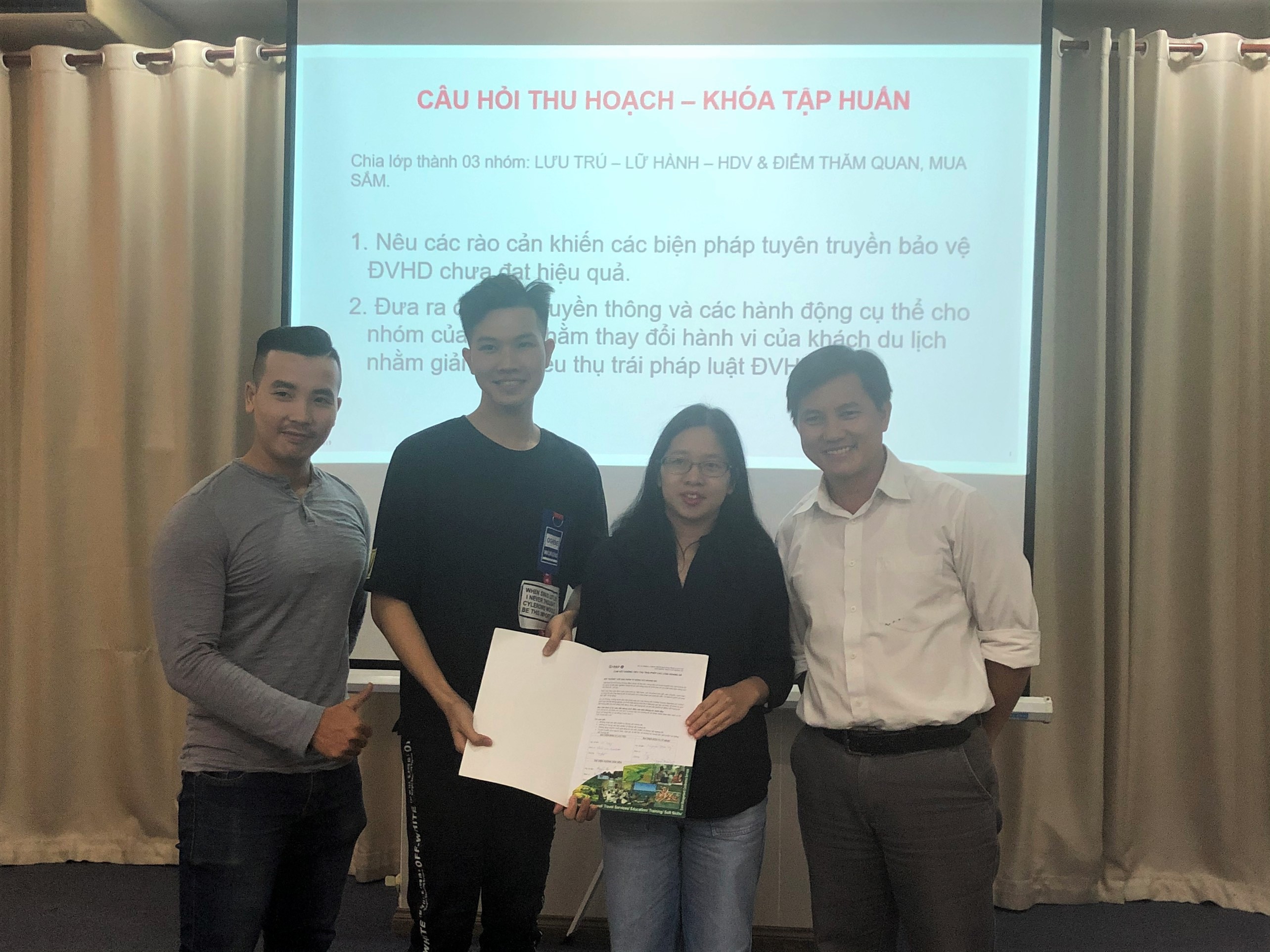
Speaking at the opening of the training course, Associate Professor Dr. Pham Hong Long affirmed the position and strong development of Ho Chi Minh City tourism in recent years as well as the importance of the contributions that the tourism industry's staff has brought. At the same time, Associate Professor Dr. Pham Hong Long also thanked USAID & CITES, the international sponsors for these meaningful activities to widely spread knowledge as well as enhance the responsibility of propagating behavioral changes for tourists to reduce the demand for illegal consumption of wildlife products.
Within the framework of two days of serious study and enthusiastic sharing from experts, the trainees of the training course had access to a lot of very useful knowledge, practically serving the tourism industry. The lecturers shared information about the ecosystem, biodiversity and wildlife in Vietnam, updated the administrative and criminal sanctions of current Vietnamese Law for violations of wildlife protection, the impact of the tourism industry on the protection of ecosystems and wildlife. The program also received positive shares from project representatives about the effects of communication on changing consumer behavior. The training course not only conveyed useful knowledge but also received enthusiastic responses from the trainees in volunteering to participate as well as implementing wildlife protection communication at their business units through hanging banners and signing commitments.
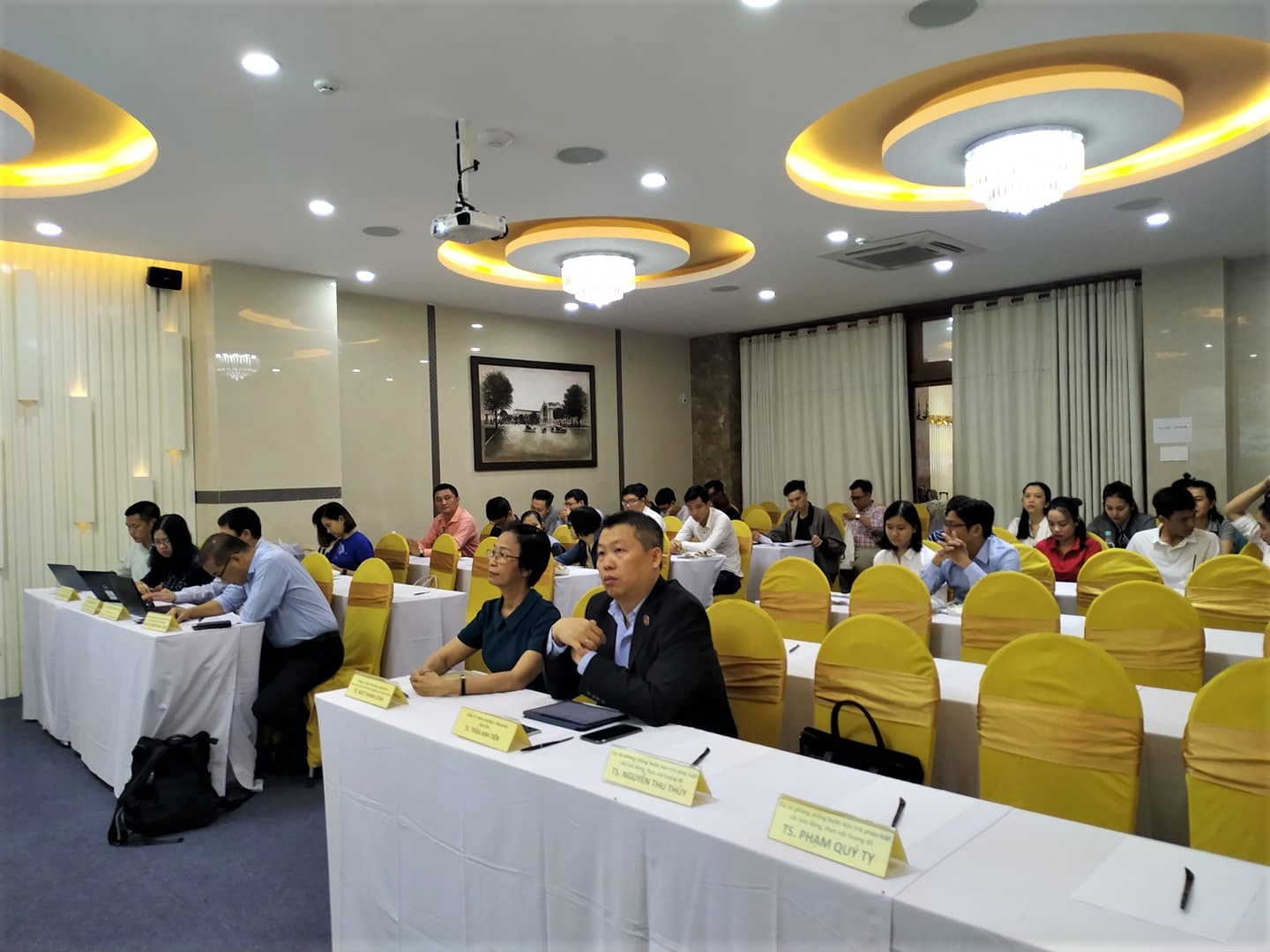
The training course opened up a close connection between members who share the same concern for wildlife protection. Trainees have had initial changes in their awareness, roles and responsibilities as well as those of businesses and the tourism industry towards protecting the ecosystem in general and wildlife in particular.
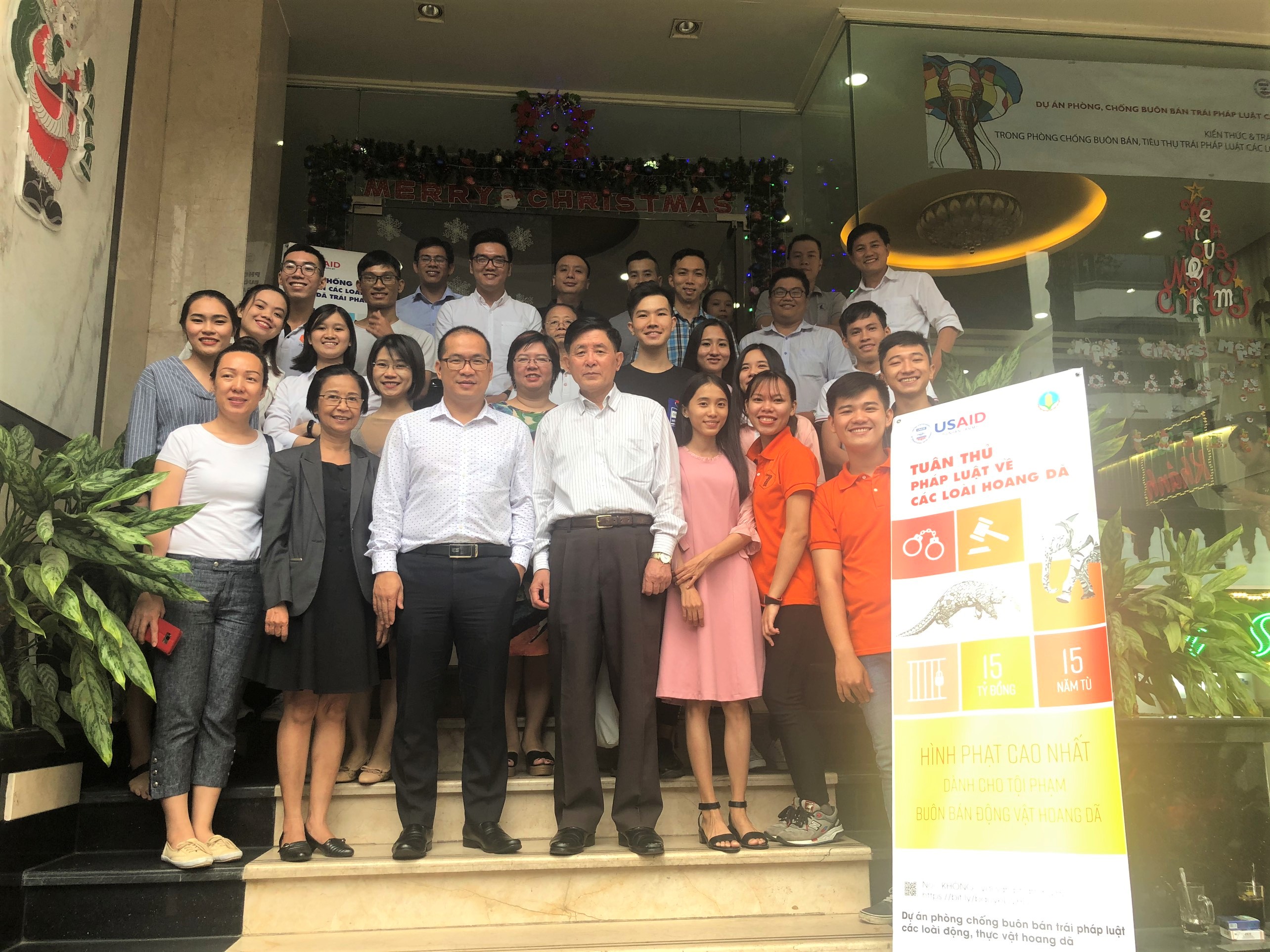
To support the program, readers can sign and share a commitment not to illegally consume wild animals, plants and products from wild animals at the link: https://bit.ly/baoveDVHD
Author:TASS
Newer news
Older news